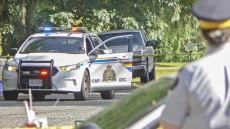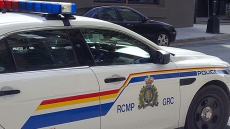OTTAWA - Some of Canada's telephone providers are being called on by the country's telecom regulator to add to their arsenals in the battle against phone scammers.
The Canadian Radio-television and Telecommunications Commission announced Monday that it expects companies that provide Internet-based phone services to adopt new technology by next fall aimed at reducing the number of fake calls received by unsuspecting consumers.
To better protect Canadians from so-called "spoof" calls, telecom companies should be able to implement systems by Sept. 30, 2020 that will give many consumers the ability to verify whether calls they receive are from legitimate people, businesses or government agencies, the CRTC said.
The regulator wants service providers to adopt a new framework, known by the acronym STIR/SHAKEN and already adopted in parts of the United States, that will allow Canadians with Internet Protocol or VOIP-based phones, or mobile phones, to see whether calls they receive can be trusted.
"Nuisance calls are a major irritant for many Canadians," CRTC chairman Ian Scott said in a statement.
"The new STIR/SHAKEN framework will enable Canadians to know, before they answer the phone, whether a call is legitimate or whether it should be treated with suspicion."
It is not clear, however, how the calls will be verified.
That will depend on how service providers implement the technology, said the regulator, calling the required technical changes "complicated."
The regulator says that roughly 40 per cent of the 80,000 to 90,000 complaints it receives annually about unwanted phone calls revolve around caller-ID spoofing.
The calls are not just a nuisance.
The Canadian Anti-Fraud Centre has estimated Canadians have lost nearly $17 million since 2014 to scam artists who use computer programs to spoof legitimate telephone numbers, including numbers used by the Canada Revenue Agency, Service Canada and even local police.
To convince their intended victims to take their scams seriously, fraudsters use programs to change the number they're calling from to one that the receiver would trust, such as a friend or legitimate government agency. In some of the more elaborate scams, fraud artists will call the victim from a second number that also appears on a caller ID display as coming from a legitimate source.
Caller ID technology used in today's phone systems was developed with little consideration that it could be used nefariously and hasn't changed much, while the technology to exploit it has exploded.
STIR/SHAKEN ("Secure Telephony Information Revisited/Signature-based Handling of Asserted information using toKENs") will enable VOIP service providers to verify whether a caller's identity can be trusted.
What that will look like on your call display hasn't been determined, the CRTC said Monday.
It could appear as a check mark or some other indicator that suggests it's OK to answer a call, officials said. Much depends on how the phone service providers implement the framework.
The framework does not work on landline phones offered by so-called legacy service providers.
But the CRTC said major telecom companies are also expected to meet a Dec. 19 deadline to implement technology that could eliminate calls from scammers by blocking calls with misformed ID numbers such as those starting with a zero or appearing to originate overseas. Telecom service providers have also been exploring ways to trace nuisance calls back to their points of origin so they can be blocked or investigated.



